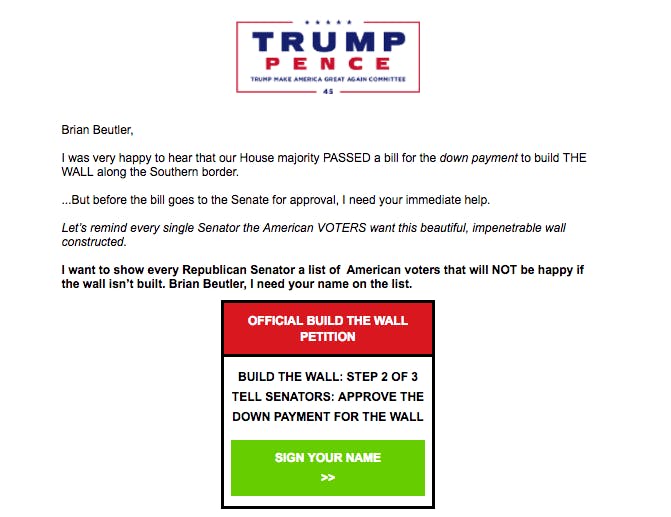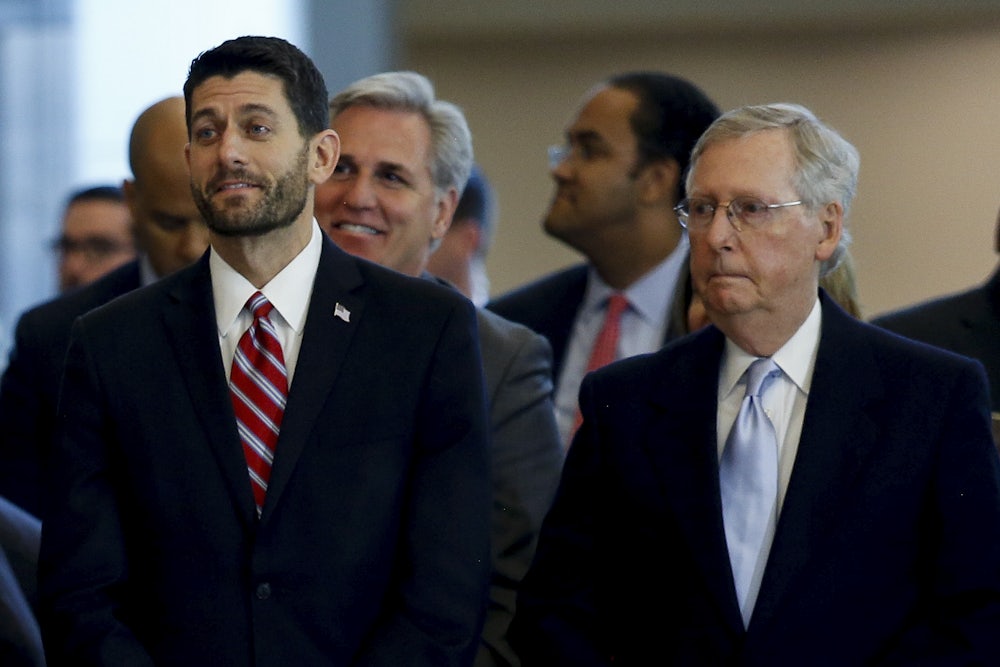For all his bluster, President Donald Trump has established a fairly consistent pattern of issuing bold threats for the enjoyment of his core supporters and then backing down when the moment of truth arrives or his advisers intervene.
There are exceptions, of course—like when he made good on his promise to exit the Paris climate agreement—but the trend is hard to ignore. Trump has backed down from threats to collapse Affordable Care Act markets by withholding subsidies, to unilaterally withdraw from NAFTA, to respond to North Korean taunting by launching a nuclear first strike, and to void the global powers agreement governing Iran’s nuclear program.
It’s not always clear who or what talked him down, but in general we have been left to assume that Trump caves because at least on some level he responds to reason. While Trump is reportedly obsessed with Barack Obama and consumed with the desire to demolish everything his predecessor built, he’s eased off almost every time—presumably because he knows the political consequences of such reckless sabotage would be severe.
But Trump is also profoundly ignorant and Id-driven, which means that if there is any restraint in the White House, we have to wonder whether it is Trump’s advisers—in the administration, on Capitol Hill, and elsewhere—who are holding him back from the brink.
For seven months, this unstable dynamic has been stalking our national policy, and no one but the president and his men—if even them—know if or when it will break down. In the past several days, Trump’s relationship with his advisers and lawmaking partners has reached a nadir. On Tuesday, at an unhinged rally in Phoenix, Arizona, Trump implied he would allow the government to shut down unless congressional appropriators agreed to fund construction of a wall along the Southern border. Now that the president has issued one of his largest and most baffling threats yet, we are about to learn whether Trump will break loose of his last constraints, and whether Republicans in Congress are prepared to take matters out of his hands when he does.
Trump threatened to hold his own government hostage for border wall-funding once before, this past spring, but caved per custom at the pivotal moment.
Back then, though, he hadn’t yet cycled through nearly a complete roster of senior White House aides, and GOP congressional leaders were still conniving with him to pass a far-reaching legislative agenda, which prevented his relationships with them from growing too strained.
Six months later, Trump and his media allies are now treating congressional Republicans, particularly in the Senate, as their political enemies. At the rally in Arizona on Tuesday, the president disparaged both of the state’s GOP senators, John McCain and Jeff Flake, the latter of whom is up for re-election next year.
On Wednesday, Trump’s campaign fundraising committee sent out an email identifying Republican senators as potential obstacles to the construction of the border wall.

It is unheard of for a president to shut down his own government to punish Congress for doing anything, let alone for failing to oblige him on a narrow funding request for a divisive policy goal. More than unprecedented, it would be sheer madness.
Though Trump’s impulses are less restrained than ever, there is next to no chance that Congress is going to finance his border wall. The very fact that GOP leaders take Trump’s veto threat seriously speaks strongly to the notion that he can’t be trusted with the powers of his office. But so long as Republicans are unwilling to remove him from it, they must at least be prepared to take these kinds of decisions out of his hands.
In practice, that would mean not only calling Trump’s bluff by rejecting his demands, but also surrendering considerable power to Democrats so that must-pass bills clear Congress with veto-proof majorities. Doing so would call down the wrath of Trump-loyalist media outlets, but the consequences of the alternatives—defaulting on the national debt, enduring an indefinite government shutdown—would be horrific, and to inflict them on the public out of cowardice would be immoral.
Trump gains no more leverage taking his own government hostage than he would robbing a bank with a gun held to his own head. But it does allow him to inflict vast collateral damage out of spite. And this time, unless Congress stops him, Trump may refuse to back down, because spite is all he has left.
